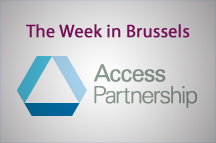 Brexit
Brexit
Regular observers of EU negotiations – as most recently with the Greek bailout crisis – will not have been surprised that the conclusion of phase one Brexit negotiations went right down to the wire this week. Theresa May returned to Brussels in the early hours of Friday morning to finalise the agreement. Appearing alongside Commission President Jean Claude Juncker, there was palpable relief as the pair announced that “sufficient progress” had been made on the key divorce issues (the Irish border, financial settlement and citizens’ rights). Talks can now move on to phase two – the future trade agreement. It now falls to Council President Donald Tusk to prepare the ground for EU leaders to give their blessing to the “sufficient progress” verdict at next week’s EU Council leader’s summit.
The breakthrough in talks appears to rest on a promise that the UK will maintain regulatory alignment with at least some elements of the single market and customs union, to avoid the need for a hard border between Northern Ireland and the Republic of Ireland, while simultaneously guaranteeing that there will be no regulatory divergence between Northern Ireland and the rest of the UK. The practical details of how this can be achieved will be addressed under phase two negotiations and, as always, “nothing is agreed until everything is agreed”.
 The future of the Eurozone
The future of the Eurozone
While Brexit has generated most of the headlines, concrete discussions are currently underway among remaining member states for closer cooperation. EU finance ministers have been in Brussels this week to discuss the future of the Eurozone, with a variety of options for deeper integration of the single currency, including the creation of a Eurozone Monetary Fund, Eurozone finance minister and Eurozone budget. The UK’s departure has created significant concerns about the ability of non-Eurozone EU members to peg back some of the more expansionist Eurozone designs. Mário Centeno, a Harvard-educated economist who has served as Portugal’s finance minister since 2015, was elected as the next president of the Eurogroup.
Tech policy
It’s been an equally busy week in the world of technology policy. Telecoms ministers convened in Brussels for discussions on a number of legislative files under the Digital Single Market Strategy. They signed off a roadmap for 5G deployment across the EU, including a common vision the spectrum bands to be harmonised and allocated to telecoms operators. Elsewhere, the Estonian Presidency has published a compromise text on the controversial ePrivacy Regulation, outlining the significant work which lies ahead for national delegations in reaching agreement on the beefed-up privacy regime for electronic communications. An unofficial draft of the Estonian presidency compromise text on the Free Flow of Data Regulation has also been doing the rounds in Brussels. Both files will be discussed by national delegations at a meeting of the Telecoms Working Party 11 December.
End of term
Looking forward to next week, the Brussels bubble will be a hive of activity, as legislators and lobbyists try to wrap up key discussions ahead of the Christmas break. Top of our agenda is the European Commission Digital Single Market stakeholder workshop on Tuesday and a stocktaking event organised by the Estonian presidency on Thursday reflecting on the key achievements of their term.














